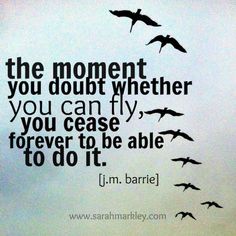
I little while back I watched the Netflix series “Mindhunter”. It is about the development of the FBIs behavioral science unit in the 1970s, as they start to study and try to understand the mindset of serial killers.
It’s a cool show. It’s slow moving at times, but starting to get into the psychology of killers (and specifically serial killers) is fascinating in its own way.
The was one scene in the series where the main characters are investigating a murder, and one of them says that he anticipates additional victims. I can’t remember the specifics, but he says something along the lines of how he believes that with serial killers they have probably played out the scenes of killing someone in their heads many times, and with the first victim it is often a case of opportunity. Maybe that first victim fell into their lap, and they got away with it. It gave them a sense of power, and excitement, and they get “a taste for it”. So after that first victim, it’s only a matter of time until they kill again.
It’s a disturbing thought, but also one that makes a lot of sense to me. The realization of fantasy can make it so fantasy isn’t enough anymore, and it starts to spill into reality.
This got me thinking about affairs.
Yes, really.
And if you bear with me a moment hopefully this will make at least *some* sense.
Within law, there are different classifications on the severity of what it means when you kill someone.
- Manslaughter is a scenario where you killed someone, but it was an accident. There was no intent. Negligence perhaps, but not intent.
- Second degree murder is intentional, but it happens in the heat of the moment and wasn’t planned in any way.
- First degree murder is the most serious offence. It is not only intentional, but it is also planned/premeditated.
And then you have serial killers.
Serial killers engage in a series of first degree murders (though going with the idea from Mindhunters, I suppose their first victim *may* have been second degree). In law, they are charged with multiple counts of first degree murder.
But I think most would agree that serial killers are a whole other class of nastiness.
I’ve said before in these pages that I don’t think all affairs are created equal. Don’t get me wrong, they are all bad. They are all destructive, and it’s up to each individual and couple to think about what the affair means for their existing relationship. But that doesn’t mean all affairs are equal.
I have heard people claim their affair was an “accident” and they “never meant for it to happen.”
I don’t buy that excuse at all.
There is no affair equivalent to Manslaughter, because affairs can’t be accidents.
It’s not like someone is walking around one day and they slip, and they accidentally make out with/have sex with someone else while they are falling. I’m *pretty* sure it doesn’t work that way.
However I can buy the notion that affairs can be like second degree murder. They can be something that wasn’t planned and happens in the heat of the moment. THAT I can buy. And when affairs *are* like that I suspect there is a lot of regret and remorse, and “oh my god what have I just done” feeling after.
Affairs are frequently a point of no return for relationships, because trust is at the foundation of any relationship and when an affair is revealed that trust is gone.
That being said, in these scenarios, I do think it’s actually possible for couples to work through rebuilding that trust and continuing the relationship. Both people would need to be willing to face it, work through it, and let it go. But I believe it IS possible.
Calculated affairs (which are more like first degree murder) are different though. These are planned, and the adulterer knows exactly what they are doing and getting into. They are fully aware of the damage they are doing to their relationship, they simply don’t care.
Perhaps they do care at some level, but they have decided that what they are getting out of it (pleasure, a feeling of being desirable, a feeling of power, living out a fantasy, or whatever they are looking for) is worth the risk.
In these scenarios I would caution someone to think long and hard before they give the adulterer a chance.
Healthy relationships require mutual respect and caring. When someone has intentionally gone down the road of an affair, they are showing exactly who and what they value in the relationship.
And what they value is themselves.
In going ahead with this sort of affair, they are showing a complete lack of empathy for their partner.
Perhaps more alarmingly, when someone has been able to detach themselves enough from the relationship to have this sort of calculated affair; it rarely ends after the first time (if they “get away with it”). Rather, they will continue to engage in the affair or perhaps even have a series of affairs with different people.
Take the description of serial killers that I paraphrased from Mindhunter earlier, and replace the words “victim” and “kill” with “affair partner” and “cheat”:
“with the first affair partner it is often a case of opportunity. Maybe that first affair partner fell into their lap, and they got away with it. It gave them a sense of power, and excitement, and they get a taste for it. So after that first affair partner, it’s only a matter of time until they cheat again.”
I truly believe this is what happens here.
In fact a few years ago I interviewed two people (one male and one female) who had gone down the road of affairs and although it’s a small sample size they both furthered this belief.
The guy spoke of the affair becoming an addiction, and how he couldn’t stop thinking about her. He acquired that “taste for it”, and he described it as euphoria when they were together. He eventually ended the affair and to my knowledge has spent the last few years trying to rebuild the relationship with his wife.
The lady was a bit different. From our discussions I believe she once loved her husband, but she loved how the affair made her feel. The excitement, the power, the fantasy world. She continued the affair and I believe had at least a few different partners. She had no intention of stopping, but also had no intention of leaving her husband because she enjoyed the life that he provided.
Take a look at this list of characteristics:
- Sensation seeking
- Lack of remorse or guilt
- Lack of empathy
- Impulsivity
- The need for control
- Shallow emotions
- Lack of responsibility
- Cunning and manipulative
This is a list of characteristics exhibited by serial killers, and I believe it can also be used to describe serial adulterers.
To engage in a long term affair or multiple affairs, you can’t really have empathy. You can’t truly care about your partner.
You also can’t really be bothered by guilt.
I’m sure at some level you know what you are doing is wrong, but you’ve found ways to justify your actions to yourself. You’re special. You deserve this. Your relationship isn’t that great to begin with. In fact, it’s probably your partners fault because you wouldn’t be cheating if they were taking care of your needs.
A few years ago a number of my readers were women who had stumbled across my site while trying to understand and deal with the fallout and emotions of discovering an affair.
There was always pain, a sense of loss, but also frequently a sense of guilt (along the lines of maybe it wouldn’t have happened if I had been a better partner) and questions about whether I felt the relationship was still worth working on.
I never really wanted to answer that question because I think each person needs to make whatever decision they feel is right for them. But I do caution anyone to consider the following question:
If you find your partner has been cheating and they have continued it for a long time or had multiple partners, do you think they actually care about you? Is it you they want, or are you simple a means to an end – a way to have a life, a lifestyle and perhaps keep a family together? And if it’s the latter, are you really any more than a tool?
For anyone dealing with the pain of discovering an affair, remember that the affair is not about you, and it is not a reflection on you.
Maybe your relationship isn’t what it could be, and maybe you’ve played a part in that. Own that part of things, and only that part.
Having an affair is always a choice, and there was always a different way.

 Last night I was driving home, just like any other night; when everything suddenly changed.
Last night I was driving home, just like any other night; when everything suddenly changed.











